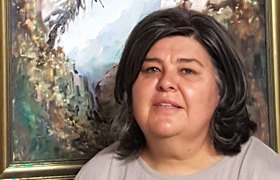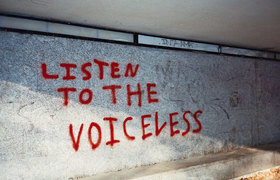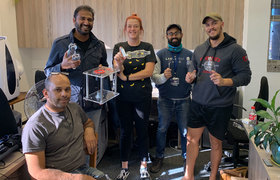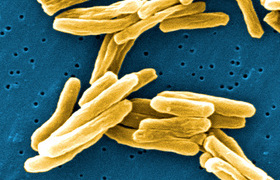Breathing beyond boundaries
10 November 2020 | Story Farah Khalfe. Photo Adobe Stock. Read time 7 min.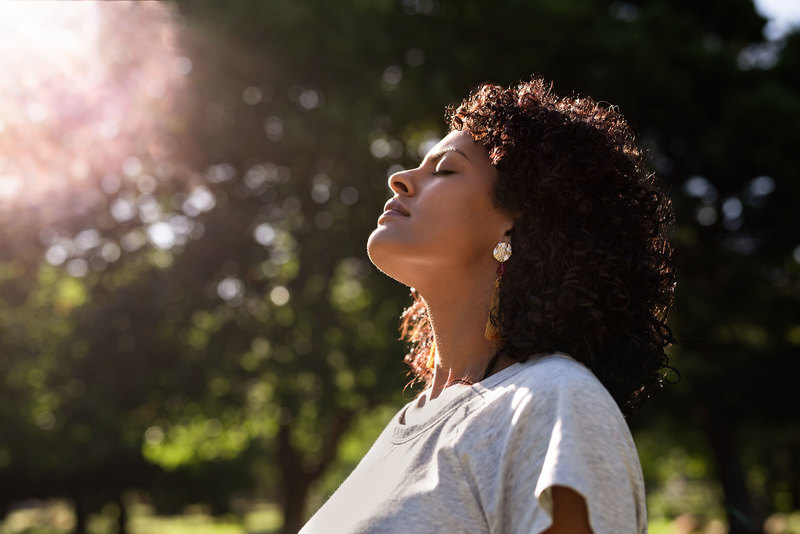
A first of its kind in South Africa, the BREATH: Inspire/Expire Symposium is a four-week virtual event that showcases the growing field of medical and health humanities on the continent.
The symposium is being co-hosted by the University of Cape Townʼs (UCT) Primary Health Care Directorate, the Wits Institute for Social and Economic Research (WiSER) and the Medical and Health Humanities Africa (MHHA) network.
Running from 19 October to 13 November 2020, it is positioned at the intersection of social sciences, humanities, health sciences, arts and activism. It seeks to be of shared public interest and appeal to an audience from diverse backgrounds.
What theme more common then, than breath and the act of breathing?
As breathing is an involuntary and critical bodily function, the symposium not only explores it in the literal sense, but also figuratively – highlighting how the act of inhaling and exhaling freely is linked to a multitude of societal factors.
According to Dr Carla Tsampiras, a senior lecturer in Medical and Health Humanities (MHH) at UCT, the topic of breath became increasingly urgent with the outbreak of the novel coronavirus (COVID-19), and showcased the connections and disconnections between lungs, livelihood and life.
It is our job to “bear witness and respond to the ongoing asphyxiation of the planet, people and non-humans at the hands of the powerful and privileged”, said Dr Tsampiras and her colleague from WiSER Associate Professor Nolwazi Mkhwanazi.
Symposium highlights
The first week of the symposium saw works linked to topics as diverse as autism and boxing, stillness, waiting and intentionality. The second week looked at singing and dancing in relation to respiration and healthcare, while the third week considered breathing and the environment.
The final week will incorporate aspects of breath and caring, critical race theory, the role of the university, public memory, food and breath.
Attendees are invited to think creatively about the many ways in which breath and breathing feature in our everyday lives.
“We wanted to create a space to collectively explore themes around breath.”
“We wanted to create a space to collectively explore themes around breath – the physical processes to inhale, or inspire, and exhale, or expire, as well as the metaphorical or conceptual extensions of what it means to inspire and expire.”
Tsampiras added: “Being able to breathe, being breathless, having the act of breathing interrupted or resuscitated – and the many economic, social, political, structural, environmental and historical factors that shape the act of breathing – represent the complex interconnections that link people, planetary systems and wellness.”
One of the highlights of the event is the sheer diversity and scale of creative works, exhibitions, workshops and presentations of films, poetry, photography, academic papers, and more. Participants can attend scheduled live events or browse galleries in their own time online, meaning there is something for everyone to engage with, relate to or learn from.
“There have been discussions about George Floyd’s final words, ‘I can’t breathe’, [and] the Black Lives Matter movement and contexts on the African continent, while participants have also explored notions of resistance, representation and new modes of thinking, acting and breathing.”
A keynote speech by integrated healthcare practitioner Dr Ela Manga on “The science and art of conscious breathing” was also a standout feature.
Holistic understanding of healthcare
The active and growing MHHA network is centred on numerous concerns, among them inclusion, accessibility and social justice. These themes also serve as a backdrop for the symposium, illustrating the critical need for healthcare to be looked at through the lens of people and their environments.
A holistic understanding of healthcare, Tsampiras said, requires a detailed and nuanced engagement with the contexts that shape how, when and why healthcare is sought, as well as how it is provided.
However, the historical record of healing and medicine often paints a different picture. It is riddled with examples of healthcare responses and efforts that focused solely on the illness or the crisis at hand – and not the context in which the people addressing it found themselves.
“As a field, MHH allows us to share our expertise and knowledge while also exposing us to ways of understanding healing and health that might fall beyond our usual disciplinary or professional silos.”
According to Tsampiras, MHH creates a space to learn from the past and imagine new futures of wellness.
“As a field, MHH allows us to share our expertise and knowledge while also exposing us to ways of understanding healing and health that might fall beyond our usual disciplinary or professional silos. This allows for a pooling of insights, knowledge, experience and responses that can strengthen our critical analysis and thinking and, ultimately, ensure improved wellness – not just for humans but also for the planet.”
Huge strides
After receiving a Wellcome grant to continue developing the field of MHH in Southern Africa, Tsampiras and Mkhwanazi, along with members of UCTʼs faculties of Health Sciences and Humanities, have already made huge strides in shaping the field and ensuring its intellectual success. This has been achieved through the work they are doing as well as their willingness to embrace inter-, multi- and transdisciplinary research.
The strong encouragement they’ve received from the broader national and international academic community has also been a positive influence.
“We have received significant support from colleagues in the humanities and social sciences and healthcare practitioners and artists, and this has allowed for exciting collaborations and innovative teaching opportunities,” Tsampiras said.
New perspectives
With the BREATH: Inspire/Expire Symposium providing one of the first opportunities for people to truly engage with the field of MHH, Tsampiras said that she hopes participants would come away from the experience with a renewed sense of self.
“We hope people will find time to think about and experience their own breath, and shared breath in a way that is altered from the one they had before. We want people to exhale stale ways of thinking about breath, and inhale new, fresh perspectives and ideas.”
Going into its fourth week, there are still a myriad of creative works to look forward to, including a presentation by the University of Pretoria’s Ziyanda Majombozi on mothering in a pandemic, a keynote lecture by Professor Jane Macnaughton, the director of the Institute for Medical Humanities at Durham University in the United Kingdom, titled “The breath of degradation: Why is breathlessness invisible?” and two exciting academic panels.
For more information, visit the MHHA website, the symposium website or follow the MHHA network on Twitter, Facebook and YouTube.
 This work is licensed under a Creative Commons Attribution-NoDerivatives 4.0 International License.
This work is licensed under a Creative Commons Attribution-NoDerivatives 4.0 International License.
Please view the republishing articles page for more information.







